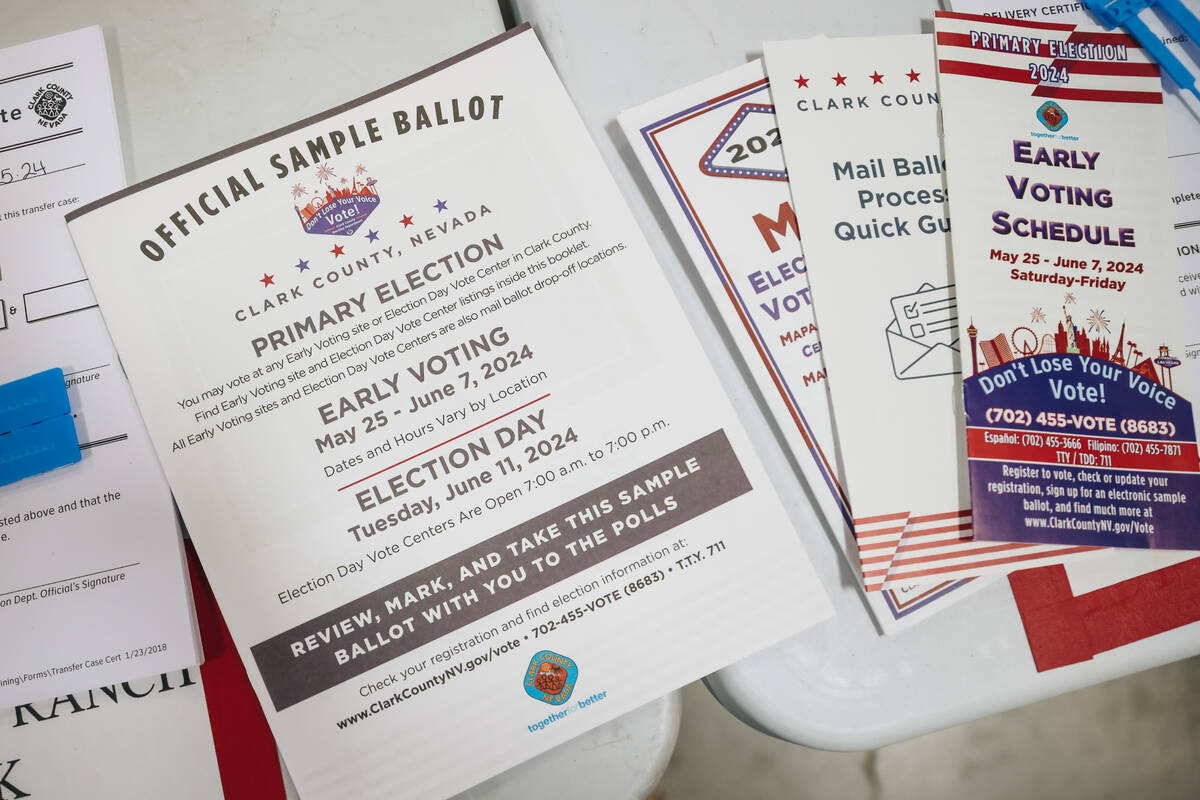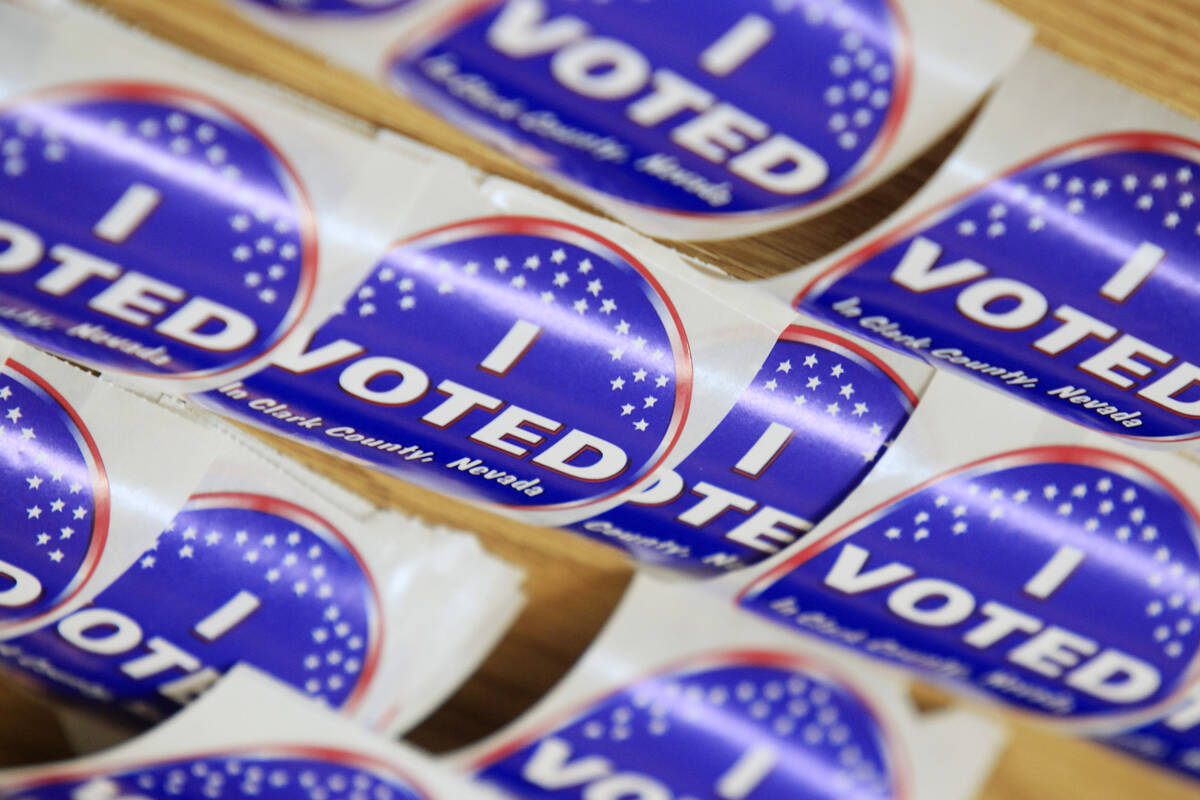5 things to know on the 1st day of early voting in Nevada
Saturday marks the first day of early voting, a period that will last until June 7, with Election Day taking place June 11.
Here’s five things you need to know about early voting and the primary.
1. Where do I vote?
There are early voting sites scattered all across the Las Vegas Valley open to any voter registered in Clark County.
The county elections department’s website has a tool where you can find an early voting site near you at https://elections.clarkcountynv.gov/VoteCentersVoter/index.html.
Some of the long-term early voting sites include Craig Ranch Regional Park, Galleria at Sunset, Las Vegas City Hall, Meadows Mall, the Nellis Crossing Shopping Center and the Whitney Recreation Center.
Even if you have received a mail ballot, you can vote in person as long as you bring your uncompleted mail ballot with you to return to an election official or sign an affirmation at the site swearing you have not already voted in the election.
2. How do I know if I’m registered?
You can look up your voter registration information at https://www.nvsos.gov/votersearch/. You can update your voter registration at any time at https://registertovote.nv.gov.
3. What are some of the key races?
Nevada is a closed primary state, so voters can only vote for candidates from their own party.
If you’re a Republican — and depending where you live — some key races to pay attention to are the Senate race, where candidates including Sam Brown and Jeff Gunter are competing, as well as the primary in Congressional District 3, where Republicans like Elizabeth Helgelien, Drew Johnson and Marty O’Donnell are running.
Democrats can also vote in the Senate race, where incumbent Sen. Jacky Rosen faces Democratic challengers Mike Schaefer and Troy Zakari Walker.
Regardless of party, there’s also the Las Vegas mayoral race in which over a dozen nonpartisan candidates hope to represent the city’s more than 650,000 residents.
To see a full list of all the races in the primary, visit Clark County’s Election Department website. Your ballot has the full list of races in your specific precinct.
4. How do I know if my vote was counted?
Voters can track their ballot at https://nevada.ballottrax.net/. They can also look at their vote history to see if their mail ballots have been received or counted at https://www.nvsos.gov/votersearch/.
5. When will results be known?
The secretary of state’s office released guidance to all counties to start tabulating mail ballots and early voting in-person results at 8 a.m. on Election Day.
That doesn’t mean results will come out then; it is a crime to release results early. The secretary of state’s office requested all county clerks and registrars provide their first set of election results consisting of mail ballots received before Election Day and in-person early voting returns by 6 p.m. on Election Night so the office can conduct verification and quality assurance, according to Secretary of State Cisco Aguilar.
As soon as the clerks and registrars confirm all the polls are closed and the last voter has voted, the Secretary of State’s office will release the initial unofficial results, Aguilar said during a news call this week. Then, clerks and registrars will release updated returns as they are tabulated.
“As more and more voters opt to participate in the electoral process in different ways, either during early voting or by mail, we will be able to release more data to the public more quickly with this new process,” Aguilar said. “This also gives counties more time to process and tabulate results than they’ve had before, as they face intense pressure from the public to release these results quickly.
Contact Jessica Hill at jehill@reviewjournal.com. Follow @jess_hillyeah on X.



















